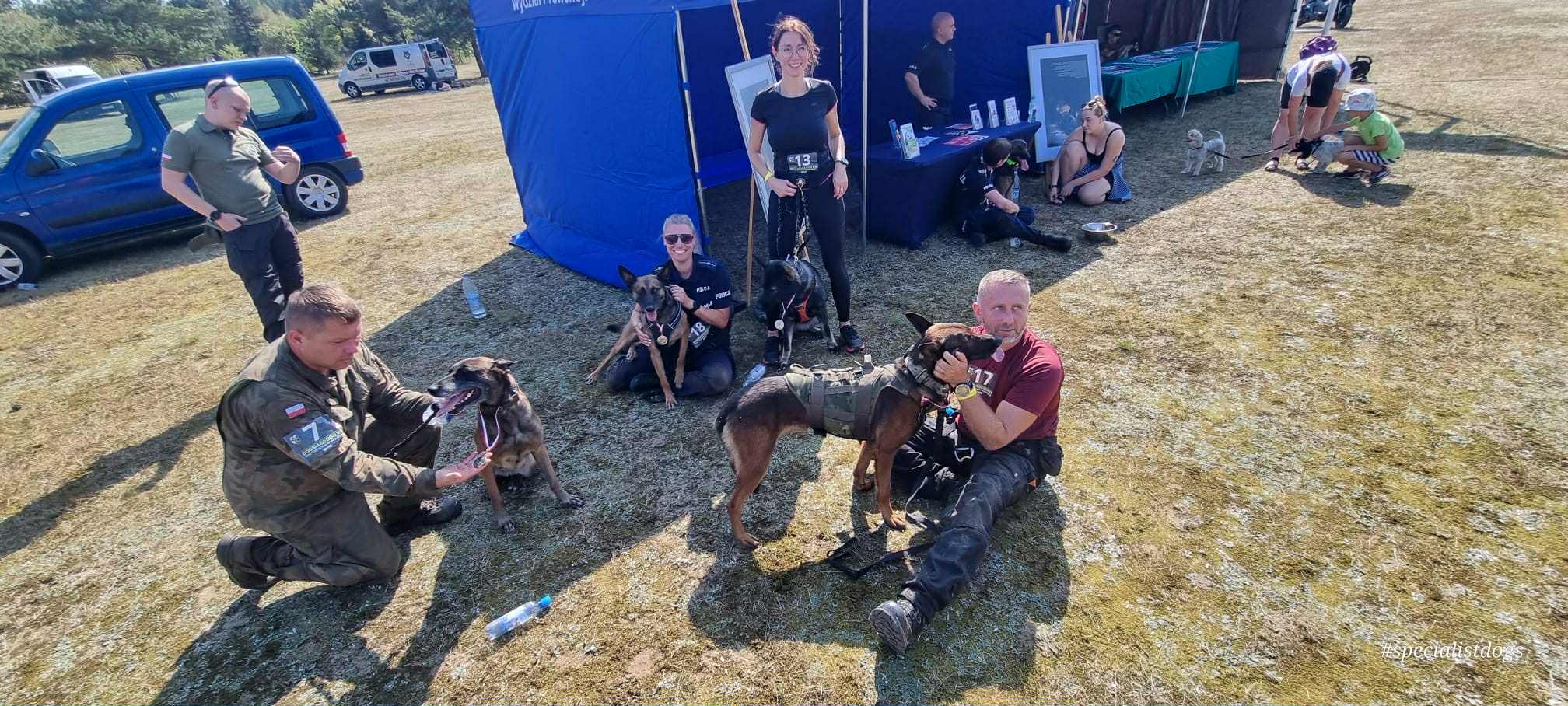Description of the facts
By judgement of the territory Court of B. of 10.3.2022, XI K 365/21, B. W. has been acquitted of 2 qualified acts under Article 107(1) of the CCC in accordance with Article 9(3) of the CCC.
An appeal from the above judgement was made by the Public Prosecutor-Chief of the Customs and taxation Office in W. He challenged him in his entirety and accused him of gross disregard for the provisions of the proceedings affecting the content of the judgement in that case, namely Article 366(1) of the NCP, by not clarifying all the applicable circumstances of the case and not obtaining an answer by the court to the question of what was the actual usage of the equipment retained, as well as an mistake in the factual findings on which the judgement was based, by any assessment of the evidence collected, namely that the accused B. W. 27.1.2017 in the village of S., as well as 2.2.2017 in the town of T., in a place without a name located at a gas station, acting as the president of the board of M. Sp. z o.o. and dealing with the economical affairs of that company, did not organise gambling on vending machines, due to the fact that all devices retained in the town of S., in the store and in the fuel station allowed for timely financial operations, and M. Sp. z o.o. based in B. fulfilled the definition of a financial institution within the meaning of Article 7a of the Act of 29.8.1997. Bank law (i.e. diary of Laws of 2022 item 2324; hereinafter: PrBank), therefore, according to Article 7a of PrBank, the rules on gambling did not apply to the company's business. The applicant requested that the judgement under appeal be set aside and that the case be referred to the territory Court of B. for review.
The territory Court of B. by judgement of 19.9.2022, IV Ka 551/22, annulled the contested judgement and referred the case to the territory Court of B. for retrial.
The complaint under Chapter 55a of the NCP was brought by the defendant. She challenged the judgement in its entirety and raised the following pleas:
- breach of the second conviction of Article 437(2) of the NCP by repealing the judgement of the Court of First Instance and mention the case back to the Court of First Instance due to the fact that it is essential to re-establish the cable in its entirety, even though specified a ground for repealing the judgement did not arise,
- breach of the rule ne peius in the event of failure by the appeal court to remedy the deficiencies which constitute 1 of the grounds for appeal referred to in Article 438(1) to (3) of the NCP.
The applicant requested that the judgement under appeal be set aside and that the case be referred back to the appeal court.
Written responses to the complaint were submitted by the Prosecutor of the territory Prosecutor's Office in B. and the Chief of Customs and taxation Office in W., in accordance with a motion to dismiss the complaint.
The ultimate Court, after the defendant’s defence had been heard, annulled the contested judgement and referred the case to the territory Court of B. in appeal proceedings.
Reasons for SN
According to the ultimate Court, the action was well founded, so the ultimate Court annulled the contested judgement and referred the case to the territory Court of B. for review in the appeal proceedings.
The basis for specified a decision is the merits of the first plea of appeal. It should be noted from the outset that the second plea relating to the incorrect application of the regulation by the appeal court ne peius Article 454(1) of the NCP is without object. The territory Court of B. did not decide pursuant to Article 454(1) of the NCP and did not, as a rule, ne peius the basis for the cassatory settlement. The Court of Appeal made it clear that its judgement was based on the request to re-establish the cable in its entirety, pursuant to Article 437(2). in fine NCP. There is no mention to Article 454(1) of the NCP and the standard resulting from this provision at any point in the written recitals.
However, making the cassatory ruling on the necessity to carry out the full judicial cord was not justified. In the resolution of the ultimate Court of 22.5.2019, I KZP 3/19, Legalis, it was stated that ‘the request to re-conduct the cable in its entirety referred to in the second conviction of Article 437(2) in fine The NCP, as the reason for the annulment of the judgement under appeal by the court of appeal and the transfer of the case to the court of First Instance for re-examination, is the case where the court of First Instance infringes the procedural law, which resulted in, in the facts of the case, the failure of the court proceedings pending, justifying the request to repeat (re-) all procedural proceedings involving a court of First Instance’. It is consistently stated in the case law of the ultimate Court that specified grounds are not essential to re-assess the evidence collected (see, inter alia, the ultimate Court judgments of 15.12.2021, III KS 24/21, Legalis and 9.3.2023, III KS 84/22, Legalis).
In the meantime, the argument of the appeal court giving emergence to the annulment of the judgement And the instance and referral of the case to re-examination comes down to the request to re-evaluate evidence, especially in the form of a trial experiment, an expert opinion M.T., check out the slot machines. The Court of Appeal points out this fact as follows: ‘The judgement was given in breach of Article 7 of the NCP, since the Court’s assessment of the evidence meriti it cannot be considered free and protected by that provision, so that ‘the court has carried out an image of the provisions of the procedure for the assessment of evidence’ and ‘recognising the case, the court of First Instance will re-examine the line and, by re-examining a reliable and comprehensive assessment of the evidence collected, will take into account the above comments and considerations’. In the justification of the judgement of the appeal court, there is no request for a retrial of evidence, even in addition.
In view of the above, the ultimate Court takes the view that in the present case the grounds for repealing the judgement have not been fulfilled and that the case should be re-examined in the form of a repetition of the full cable. The request to re-evaluate the evidence referred to in the judgement of the appeal court does not satisfy the condition of Article 437(2). in fine KPK.
Because of the fact that Adw. M.B. has been appointed as the defendant's public defender B. W. straight to the complaint procedure, the decision terminating the complaint procedure had to find the costs of its remuneration for the legal aid granted to the suspect of his own motion. Taking into account the application made in the complaint by the public defender pursuant to Article 29(1) of the Law of 26.5.1982. The law on the barrister (i.e. OJ of 2022 item 1184) in § 11(3) item 1 and § 20 of the Regulation of the Minister of Justice of 22.10.2015 on fees for legal proceedings (Journal of Laws of 2015 item 1800) was ordered to her the amount of PLN 720, including VAT, as remuneration for drawing up and filing a complaint. This ruling takes into account the case law of the Constitutional Court, which shows that the difference in the remuneration of lawyers of their own motion in relation to the remuneration they would have received if they had been appointed by choice has no constitutional justification (cf. the ultimate Court order of 15.12.2021, V KK 549/20, Legalis).
Comment
The ultimate Court is not entitled to measure the correctness of the appeal review due to the legal condition of the complaint under Chapter 55a of the NCP, as it does for the intent of erasure. The scope of the case in complaint proceedings is inherently very limited. The intent of this procedure is simply to find whether, by repealing the judgement of the court of first instance and forwarding the case for retrial, the appeal court was guided by the grounds for issuing the cassatory judgement referred to in Article 539a(3) of the NCP and whether specified a decision was essential in a peculiar case (see the ultimate Court order of 11.6.2021, III KS 1/21, Legalis and 31.5.2021, V KS 13/21, Legalis).















